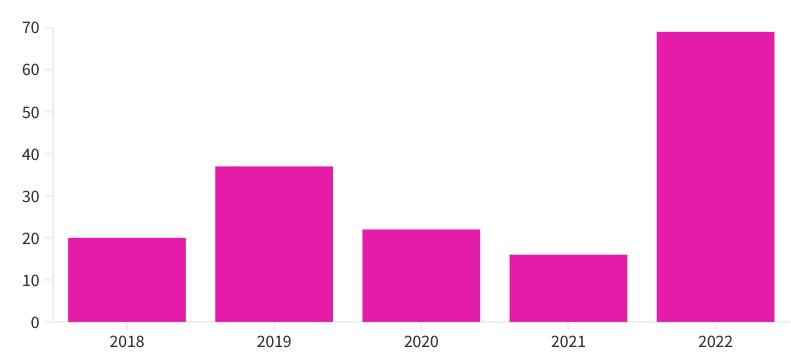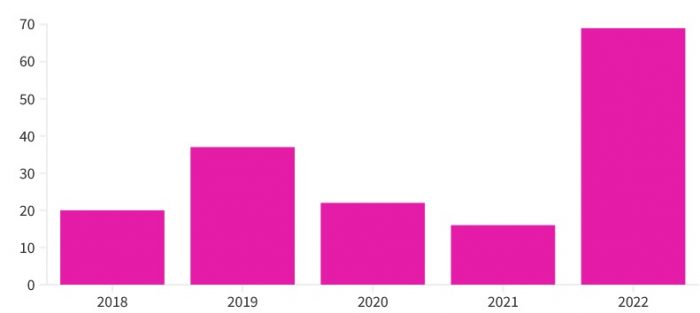
Is Racism Rife in Irish Workplaces? What is your Business doing to combat discrimination?
The UN established the 21st of March 2022 as the International Day for the Elimination of Racial Discrimination and now in its second year it is a timely reminder for Irish Employers to consider the application of their Dignity at Work and anti-harassment policies as well as promoting equal opportunities in the workplace. Further steps should be taken by Employers to have in place diversity and inclusion policies and initiatives that prevent any workplace racism or discrimination in their Organisation. Racial discrimination in the workplace is against the law in Ireland and Employers who allow it to occur can face significant legal consequences and financial penalties. Employers who fail to address racism in the workplace can also face potential reputational damage that could impact their business.
Consequences of Failing to Address Racism in the Workplace
In a recent Case Law Review an Employee was awarded €8,000 in redress due to racist discrimination in the workplace. It is an interesting case to review, as in this situation the Employer did have a Diversity and Dignity at Work policies in place but was not seen as proactive in its implementation. The Company was deemed to not have done enough to protect the Complainant against discriminatory behaviour and was ordered to pay compensation to the impacted Employee.
Is Racism in the Workplace on the Rise?
Unfortunately, a recent research report suggests that racism in workplaces in Ireland is on the rise. A 2022 Irish Network Against Racism (INAR) Report shared preliminary findings that found a record 69 cases were reported, up from 16 in 2021.

A December 2022 report by the Irish Human Rights and Equality Commission (IHREC) shares findings of young ethnic minority workers in Ireland being exposed to microaggression on an everyday basis that made some participants leave their workplace. It also shared experiences of Employees being directly discriminated against or positioned as different or inferior by virtue of a name, their race or skin colour.
What legal protections must Employers be aware of with regard to racial discrimination?
In Ireland, Employees are protected from racial discrimination by a number of laws and regulations. The Employment Equality Acts 1998-2015 prohibit discrimination on nine grounds including gender, civil and family status, sexual orientation, religious belief, age and the grounds of race, nationality, ethnic origin, or membership of the Traveller community in Employment. The Acts cover all aspects of employment, including recruitment, promotion, and training. Additionally, the Equal Status Acts 2000-2018 prohibit discrimination in access to goods and services, education, and accommodation. Employers are required to take steps to prevent discrimination and should ensure that anti-harassment procedures are in place under Dignity at Work policies. The Workplace Relations Commission (WRC) is responsible for enforcing these laws and investigating complaints of discrimination and has the power to award compensation to Employees who have been discriminated against.
Workplace Relations Commission (WRC) Complaints
The most recent Annual Report (2021) published by the Workplace Relations Commission (WRC) highlights the receipt of 85 Equal Status complaints on the grounds of Race, worryingly up 12% from 2020. There were 181 referrals under the Employment Equality Acts 1998-2015 under the grounds of race, down 14% from 2020 when it received 210 referrals. This seems positive but still accounts for the second-highest category of grounds for complaints under that Act; which points to a greater need for establishing and promoting equal opportunities in the workplace.
Benchmarking Diversity and Inclusion in Irish Companies
Our most recent HR Barometer Report (Nov 2022) found that –
• seven in ten (72%) Organisations have a formal Diversity and Inclusion (D&I) policy in place
• 50% of Organisations delivered D&I training in 2022
While it is a good start, it is important to note that a D&I policy alone, is not enough. Training and embedding inclusive practices promoting inclusion and diversity is also important as demonstrated by the recent WRC judgment against the Company we outlined earlier.
What can Businesses do to combat racism at work?
Employers should take action to address racism in the workplace including not only the implementation of clear policies under Equal Opportunity but also by providing diversity and inclusion training to all Employees. First and foremost Employers should have robust Dignity at Work policies and procedures in place to ensure all concerns of harassment are addressed in an appropriate manner and in order to guide Employees on how to report incidents of racism. Where any concerns arise Employers must take swift and appropriate action against those who engage in any discriminatory behaviour.
Racism in the workplace is a serious issue that Employers must address. Employers who create an inclusive workplace culture often reap the benefits of increased Employee morale and productivity, leading to a more successful and profitable business. Employers who actively work to create a diverse and inclusive workplaces will not only benefit their Employees but should also see their Businesses thrive. Staying compliant with legislative requirements is the first step and Employers must ensure adequate protections are in place for Employees through the deployment of appropriate skills in managing complaints and promoting inclusive practices.
If your Organisation needs advice, support, or guidance in relation to compliance requirements when managing workplace conflict, Dignity at Work, Diversity and Inclusion Policies/Training or indeed any HR issues, please contact Adare Human Resource Management call (01) 561 3594 or email info@adarehrm.ie .
